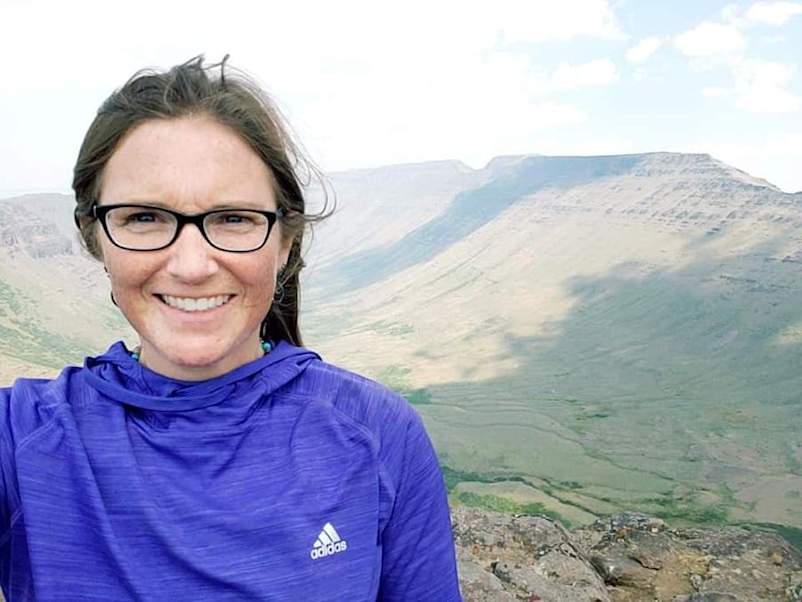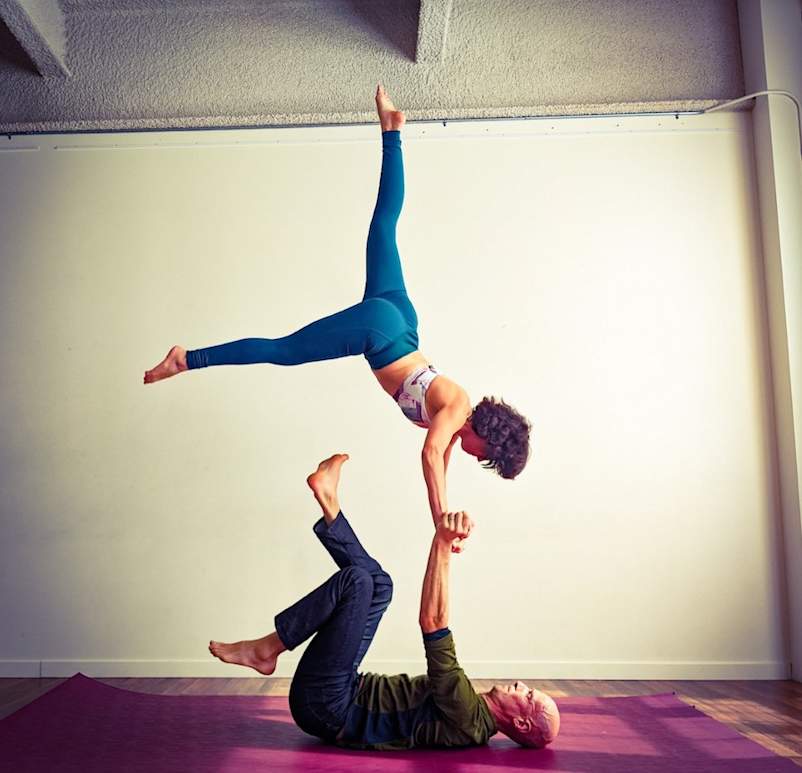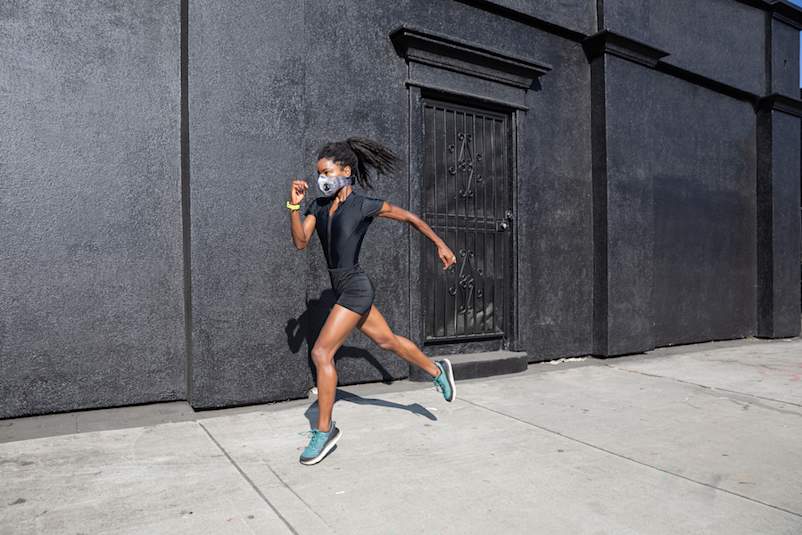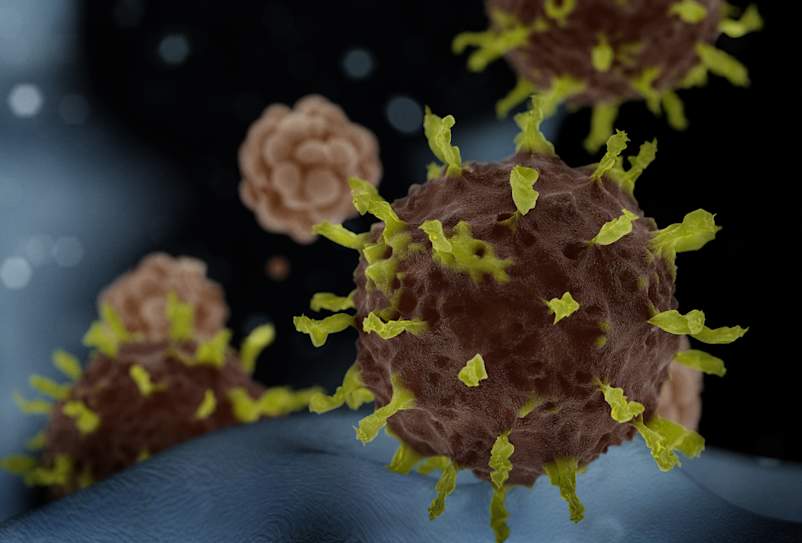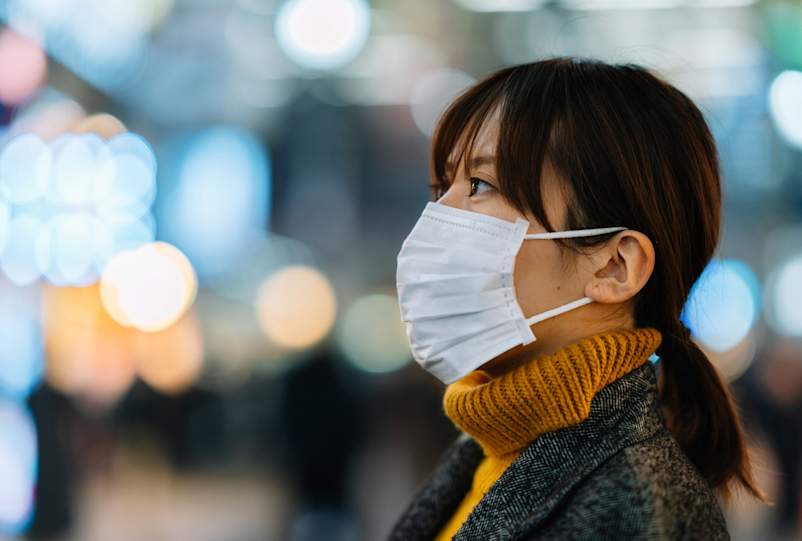COVID-19, the illness caused by the new coronavirus (SARS-CoV-2), doesn’t appear to be going away anytime soon. It’s now a global pandemic. And as daily headlines tell of rising outbreaks around the world—and growing numbers here in the United States—it’s only natural to feel uneasy and wonder whether your community is in danger. But arming yourself with the facts—and some practical tips to keep yourself safe—can help ease the urge to panic.
To keep you up to date on the status of the COVID-19 outbreaks around the world and in the United States, here are 10 key facts (updated daily) about the illness you should know.
1. It’s True: The Situation Worldwide Is Serious
This new coronavirus has spread from its origin of China to more than 100 other locations, according to the Centers for Disease Control and Prevention (CDC)—and yes, that includes the United States. Here are the key numbers to know for the top affected countries, as of 1 p.m. on April 27, according to the Johns Hopkins University’s Center for System’s Science and Engineering interactive tracker for the virus, which pulls real-time data from the World Health Organization (WHO) and the Centers of Disease Control and Prevention (CDC):
- Total confirmed cases in the United States: 968,203
- Total confirmed cases in Spain: 229,422
- Total confirmed cases in Italy: 197,675
- Total confirmed cases in France: 162,220
- Total confirmed cases in Germany: 158,142
- Total confirmed cases in the United Kingdom: 154,038
- Total number of confirmed cases of COVID-19: 2,995,456
2. There Are 968,203 Reported Cases in the United States
As of 1 p.m. on April 27, there are 968,203 confirmed cases of COVID-19 in the United States, according to Johns Hopkins.
All 50 states, the District of Columbia, Guam, Puerto Rico, and the U.S. Virgin Islands are reporting cases, says the CDC. California, Connecticut, Florida, Georgia, Illinois, Louisiana, Massachusetts, Michigan, New Jersey, New York, Pennsylvania, and Texas have the most, with more than 20,000 cases each. New York has more than 277,000.
Of these confirmed cases, some are:
- Travel-related. This means the people with the illness became infected while traveling in areas where active outbreaks have already occurred, such as the original outbreak site in Wuhan, China, but they weren’t tested/diagnosed until they got back to the U.S.
- Spread by person-to-person contact in the United States. Some of these occurred due to close household contact with someone who got infected outside of the country. For example, one case was diagnosed in a woman whose husband had just returned from China, where he had been infected—he just didn’t know it until it was too late, and he had returned to the States and developed symptoms there. Others got the illness from community spread.
- “Community spread” cases. Community spread cases are those detected in people who don’t report any relevant travel history or known exposure to someone else with COVID-19. Basically, they got the illness—likely in their own community—but exactly where or when they were exposed to it is unknown. Since late February, the CDC has begun reporting community spread cases in the United States.
As of April 27, there have been 54,938 deaths from COVID-19 reported in the United States, according to Johns Hopkins. Globally, there have been 207,583 deaths.
3. This Virus Is Brand New
This coronavirus outbreak is a new type of coronavirus that just spread from animals to humans in December 2019, says the CDC. Coronaviruses are a family of viruses found in certain animals, and in the past, there have been rare cases where they can infect humans and start to spread from person to person.
That’s what happened with Severe Acute Respiratory Syndrome (SARS-CoV) and Middle East Respiratory Syndrome (MERS-CoV). Experts are now calling the new version of this virus SARS-CoV-2 because it appears to be distantly related to the first SARS-CoV. All three of these viruses appear to have come from bats.
Because this virus is barely months old, top scientists are still uncovering the facts about SARS-CoV-2 and the illness it causes, COVID-19. Much of what experts are saying comes from educated guesses based on how other coronaviruses operate, like SARS-CoV and MERS-CoV.
4. The Virus Spreads in 3 Ways
Again, because the virus is so new, it’s not 100% clear yet just how it transmits from person to person—but experts have a pretty good idea based on what they’re seeing so far and how past outbreaks of similar coronaviruses have worked.
It appears the new virus, SARS-CoV-2, spreads mainly through respiratory transmission, according to the CDC. That includes:
- Transmission between people in close contact (about 6 feet from each other or closer)
- Transmission from respiratory droplets produced when a person with the virus sneezes or coughs, which can then land in the noses or mouths of others nearby or maybe even be inhaled into someone else’s lungs
- Possible transmission from touching a surface or object with the virus on it and then touching your mouth, nose, or possibly eyes (however, this isn’t the primary way the CDC thinks the virus is transmitted)
As for how contagious the virus is, the CDC is still working to figure that out—in some geographic areas, it appears to be transmitting from person to person easily (aka “community spread”), while it hasn’t spread so easily in other areas—just between people with close contact to each other.
“It is a general theory that people are most contagious when they are outwardly presenting symptoms, which for this virus, the most common symptoms are coughing, respiratory difficulty, and fever,” says Niket Sonpal, M.D., a board-certified internist practicing in New York, New York. “However, researchers do not rule out the possibility of transmission prior to a sick person showing symptoms.” However, he adds, the CDC states that this is not thought to be the main way the virus spreads.
5. There Are 3 Major Symptoms to Watch for
The symptoms of this illness include:
- Fever
- Cough
- Shortness of breath
Also watch for chills, body aches, sore throat, headache, diarrhea, nausea and vomiting, and runny nose.
Right now, the CDC thinks symptoms of COVID-19 can appear 2-14 days after exposure to the virus. Cases have varied from mild to severe, the CDC reports.
Call your doctor if you develop any of these symptoms and have been in close contact with someone with COVID-19, or if you’ve recently traveled to an area with widespread or ongoing community spread of the illness.
If you are diagnosed with the illness and your symptoms are mild, do the following, according to the CDC:
- Don’t leave the house—except for medical care. If you’re mildly ill, it’s time for that “self-quarantine” you’ve been hearing about. That means restricting any out-of-the-home activities, only leaving to get medical care. That means no work and no school. If you do leave your home to get care, don’t take public transportation.
- Stay away from people and animals in your home. If you live with others—humans or pets—try to stay away from them. If you can, isolate yourself to a specific room. If you have more than one bathroom in your home, designate one for you and one for everyone else who isn’t sick. As for staying away from pets, there haven’t been reports of pets or other animals getting sick with COVID-19, but it’s still recommended as a precaution for now. Don’t share personal household items (like drinking glasses or bedding) with others in your home.
- Call your doc before your appointment. When you make your doctor’s appointment, make sure to tell the staff that you might have COVID-19—that way they can take steps to protect themselves when you’re there.
- Wear a facemask. If it doesn’t make it harder for you to breathe, wear a facemask while you’re sick to protect others. COVID-19 is not an airborne virus, rather it’s spread through respiratory droplets. For this reason, the CDC suggests using surgical masks and respirators. Dust or paint masks made out of paper, cloth or fabric, gauze, cotton or plastic are not effective. People who are caring for you may consider wearing facemasks too, especially if you’re unable to because of your symptoms.
- Take the other usual sick precautions. That means covering your coughs and sneezes, and of course washing your hands (20 seconds with soap and water), especially after coughing, sneezing, blowing your nose, going to the bathroom, or handling food. Avoid touching your face as much as you can. Lastly, make sure high-touch surfaces in your home are cleaned and disinfected regularly.
Do these things until your doctor gives you the OK to resume normal activities. If your symptoms get worse (for example, if you’re having trouble breathing), call your doctor right away.
6. The Illness Is Usually Mild, Unless It Reaches the Lungs
In most people—80% according to a report on China’s cases from the WHO—COVID-19 is a fairly mild illness, mostly hanging out in the nose and throat and staying put. But for those in whom the virus moves on to the lungs, it can be more dangerous, leading to pneumonia and other issues.
Fourteen percent of people with COVID-19 develops trouble breathing and other severe complications. Six percent of patients become critical, usually due to respiratory failure or failure of other major systems in the body, or due to septic shock, according to the WHO report.
Older folks and those with preexisting medical conditions like heart disease, lung disease, cancer, diabetes, or high blood pressure appear to be at increased risk of getting more severe illness from COVID-19, according to WHO.
And while some of the symptoms are flu-like, COVID-19 is not a version of the flu—it appears to be more deadly. Right now, it’s not totally clear what the fatality rate is for COVID-19—estimates range from 1.4% to around 4%, STAT reports. This is higher than the typical death rate of the flu each year, which is about 0.1%.
7. Larger Outbreaks in the United States Are Likely
At this point, new coronavirus cases are climbing daily in the United States. Federal officials asked hospitals, schools, and businesses to prepare for this scenario, such as relying more on telehealth services and considering how they might use internet-based tele-schooling to continue education if quarantines are necessary.
In many communities, such closures have started taking effect to help reduce the spread of the disease and avoid over-burdening hospitals. Universities and public schools in many states have closed or moved to online classes, and public facilities like restaurants, bars, and fitness centers have been ordered closed in some places as well.
California was the first state to place a state-wide “Safer at Home” order March 19 that requires residents to stay at home other than for essential reasons like getting food and going to the doctor. Several other states and major cities have followed suit or are planning to enact similar orders, including Ohio, Delaware, Louisiana, Philadelphia, and New Orleans, among others. Check your local government website for the latest information on potential restrictions in your area.
8. You Can Take Steps to Prevent Getting the Virus
With all of this in mind, it’s important to take preventive steps to keep you and your family safe and healthy—from COVID-19 and other illnesses, like the flu.
If COVID-19 is spreading in your community, the CDC is advising that you avoid contact with other people—that’s the term “social distancing” you’ve probably been hearing a lot lately and reason why bars, restaurants, and other public spaces in your town are shutting down or changing their services temporarily. The goal? Slow the outbreak so as not to overwhelm health care systems with too many cases all at once, according to Johns Hopkins. This is called “flattening the curve.”
To practice social distancing, stay out of settings where you’ll come into close contact with others—especially mass gatherings. Stay about six feet away from other people—especially if they’re showing signs of illness like coughing.
The CDC also now recommends people wear cloth face coverings like scarves or bandanas when in public settings (like pharmacies and grocery stores) when it’s hard to maintain that social distance—especially if you live somewhere with high rates of community spread cases. This does not mean you should be buying surgical masks or N-95 respirators—these are supplies that need to be saved for health care workers and first responders. The CDC offers instructions for how to make a face covering using simple, low-cost materials you may already have at home.
The CDC also recommends these precautions to prevent the spread of respiratory diseases:
- Wash your hands, and often. “The most important thing people can do to prevent this disease and to keep themselves healthy is to wash their hands with soap and water often,” says Dr. Sonpal. Regular old soap and water does the trick, as long as you’re washing for at least 20 seconds. You can also use an alcohol-based hand sanitizer with at least 60% alcohol.
- Avoid close contact with people who are sick. Avoiding exposure to viruses in the first place is your safest bet. Similarly, when you’re sick, you should stay home too.
- Stop touching your face. Touching your nose, eyes, and mouth with unwashed hands is a quick way to spread germs.
- Cover your coughs and sneezes. Use a tissue to cover your cough or sneeze, then throw out the tissue and wash your hands.
- Keep your surroundings clean. It’s a good idea to regularly clean and disinfect high-traffic surfaces and objects, like kitchen counters, doorknobs, and kids’ toys, to name a few.
9. A Vaccine Is, Unfortunately, a Ways Off—But Treatments Are Coming Sooner
As of now, there’s no vaccine you can get to prevent COVID-19—so the preventive steps above are super important. That said, there are scientists diligently working toward developing a vaccine against this new coronavirus.
In fact, Hong Kong University of Science and Technology researchers have recently identified potential targets for a vaccine that can help guide their experiments—and according to studies, that could be a major step forward. Other research teams worldwide are working toward vaccine development, too, hoping to expedite the process.
But a vaccine is still a distant goal: : “Some estimates have been proposing an 18-month wait while the health officials of various countries look at the possibilities, it is hard to say currently when a vaccine will be ready,” says Dr. Sonpal.
Sanofi, one pharmaceutical maker working toward a vaccine, said it wouldn’t expect one to be available for 18 months, STAT reported. That said, new drugs will likely be developed much faster to help treat people infected with the virus.
For example, Gilead Sciences, Inc. a pharmaceutical developer, announced that they are fast-tracking two studies on a potential treatment for COVID-19: the antiviral drug remdesivir. “The speed with which remdesivir has moved into clinical development for this coronavirus reflects the pressing need for treatment options and the shared commitment of industry, governments, global health organizations and healthcare providers to respond to this public health threat with the highest urgency,” Gilead’s Chief Medical Officer Merdad Parsey, M.D., Ph.D., said in a news release.
Additionally, an existing drug for malaria—chloroquine—may hold promise for treating the new coronavirus, according to a paper published in Cell Research.
10. The Virus May Affect Your Travel Plans
At this point, community spread of COVID-19 is occurring globally. But there are some geographic locations where cases of are more widespread.
The CDC currently recommends everyone avoid all nonessential travel—period—because of the severity of COVID-19 spread globally. Additionally, most foreign nationals who have been to China, Iran, the United Kingdom, Ireland, and most European countries in the past 14 days have been prohibited from entering the United States.
If you’re traveling from a high-risk country to the United States, know that new procedures have been put in place that may complicate your arrival into the country, according to the CDC, including a health screening. CDC staff will give you a short questionnaire about your travel and symptoms, along with collecting your contact information. They’ll take your temperature and check for things like fever, cough, and difficulty breathing. If they suspect you may be sick, they will evaluate you further and get you care as needed. Depending on your health and travel history, you may be restricted in where you can go for the 14 days after you leave the high-risk country.
Rashid Chotani, M.D.
Dr. Chotani holds appointments as Chief Scientific Officer/VP Medical Affairs at Washington Vascular Specialists & CareLife, Senior Science Advisor at IEM and Professor of Epidemiology at the University of Nebraska Medical Center. He also serves as a Senior Fellow, Potomac Institute for Policy Studies and Adjunct Professor, College of Professional Studies at the George Washington University with a focus on public health emergency and crisis communication.


